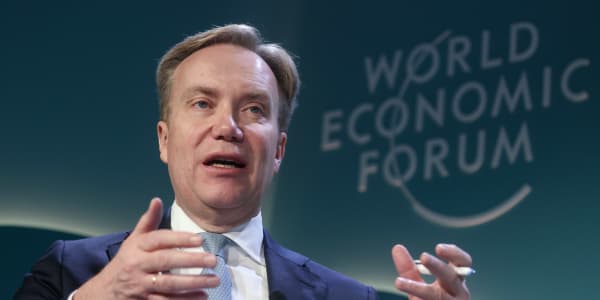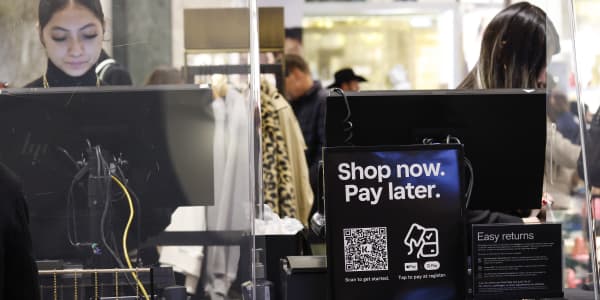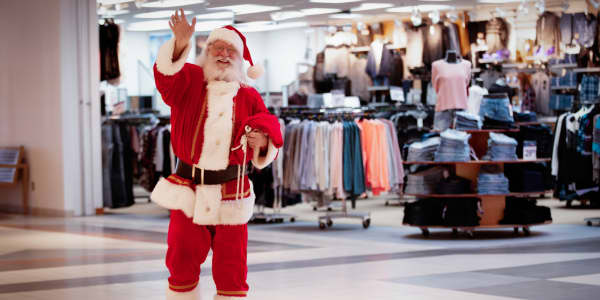It is almost summer but you wouldn't know it by the weather. Next week, the season officially kicks off and the week is expected to be the second coldest, and driest first week of summer in 15 years! Right now the one refrain apparel/retailer CEOs seem to universally repeat is the importance of clearing out inventory over the next few months as stores get ready to restock shelves with back to school items.
BonTon's CEO told me that you don't want to see strong sales gains in July because the sales are markdown generated and the importance of the month is to clear out old products. How the weather fares will be a big part of what sells. Bill Kirk at Weather Trends Internationalgave us a glimpse of what he's advising clients like Bon-Ton and Wal-Mart.
Weather Trends is advising its retail and manufacturing clients to "really push hot weather items" this week and next as "excess inventory is a concern beyond the holiday weekend!" The summer hasn't even officially begun and retailers are worried about getting rid of the summer clothing! After July 4th, sales of "hot" items will cool off BUT patio furniture, suncare and anti-itch products will be flying off shelves due to drier weather. Why is it important to play weatherperson?
Gaming the weather, having just the right product on the shelves at exactly the right market at the opportune time can make a real difference in retail sales results. Wal-Mart watches this VERY carefully and stays in immediate touch via computer with major suppliers by sharing sales data to replenish those popular items that are selling. Right now, the world's largest retailer is maintaining its 0-2% same store sales guidance for June. According to Thomson Financial, the overall discount category is on track to slightly miss the 2.3% sales gain reported in June 2006. For far for the first week of June, overall sales for retailers are coming in at a 2.4% gain, slightly lower than last year's 3.0%.
Richter's Tickers
Speaking of Wal-Mart, there is something that I've been pondering ever since I returned from their annual shareholders meeting in Bentonville, Arkansas. Is Wal-Mart capitalism's answer to the welfare state?
Wal-Mart is the 800 pound gorilla of retail and as such it is a big and easy target for criticism. As a corporation that employs 1.9 million people worldwide and is the largest private employer of American workers (the U.S. government is the top employer), the benefits and wages it provides its employees could be viewed as a benchmark for corporate responsibility. Instead Wal-Mart is constantly the subject of criticism regarding claims of pay inequity (recent class action regarding female employees), forced labor (claims that it doesn't give employees breaks) etc. What's interesting is that Wal-Mart seems to hold the exact opposite view of itself.
"Making things affordable so that people can live better"
The adage "Making things affordable so that people can live better" --Wal-Mart founder Sam Walton's quote--was plastered EVERYWHERE at the annual shareholders meeting. That's not just a brilliant marketing position to redefine "value shopping" but it taps the idea that profit motive is secondary to the company's sense of social responsibility.
Wal-Mart CEO Lee Scott cited Wal-Mart's $4 prescription drug program as a program that sells drugs to people who otherwise wouldn't be able to get them at all. Here's exactly what he had to say: "Your company changed the face of American health care with your $4 prescription drug program. To date this program has saved our customers $350 million." Scott went on to say, "Our $4 program and our in-store clinics are solutions to the health care challenges facing the U.S. But no single company no single institution can fix our health care system alone. We all have to work together even with people and groups that we have very little in common with."
How true is this? Is Wal-Mart the source of social ills and income gaps (as they are often criticized for being) or are they actually profit-motivated social actors? These ideas have got me thinking and I'll be following this story for CNBC over the next few months.
My take is that while Wal-Mart is a global retailer with international impact, their roots are still so regional in terms of how the company envisions and presents its message. Can the two continue to coexist? Can Wal-Mart continue to deliver the down home, "we're on your side" message to customers in key rural and poor urban markets while widening its grasp on sales to a global reach....more importantly, can profit motive be the ultimate weapon with which to combat poverty? As the country's largest private employer, has Wal-Mart become capitalism's answer to the welfare state?
It is something that I'll be watching over the next few months.
Questions? Comments? retaildetail@cnbc.com




